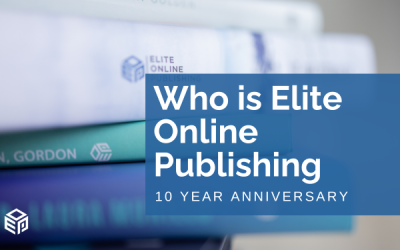Crowdfunding to Publish Your Book
If crowdfunding is changing the way we finance small businesses, it’s also making its impact felt for the creative set. There are plenty of amazing sites to crowdfund music. Bands and musicians are using these cutting-edge financing tools to finance their next concert or album, many times bypassing traditional labels completely.
Why an Author Should Crowdfund
Authors are getting in on the crowdfunding game, as well. Crowdfunding provides a good alternative to the existing options for authors.
Consider going the traditional route of getting a publisher. There are way too many writers seeking literary advances and even if you land one, the average advance and the average support given to an author from a publisher are both shrinking.
You can also find a global publishing house like Elite Online Publishing, but you may need funds to get you started.
You can also take on the self-publishing route. You write your book and launch it out into the world, with no idea how it will perform. If you’re printing hard copies, that means you, as the author, take on the costs of printing, without the faintest idea of whether your novel or memoir will sell.
- Decide how much cash you will need – do you need to pay for an editor, graphics for your cover, formatting and typesetting your book and printing some copies $11,000 to $30,00 is a good starting point.
- Think about what rewards you can offer in return for the investment. You start with small amounts and work up. Make sure that whatever you offer as a reward will not cost you more than the investment (remember to factor in any postage costs). You could start at $5 – it can be as simple as a bookmark, a postcard thanking the person. Moving up to an e-book for $10, a printed copy of your book $15, how about a dedication in your book for $50, dinner with you the author $150, a character named after you for $500. The options are only as limitless as your imagination. You decide how you want to split the rewards and how many you can offer, the more exclusive the higher the price.
- Decide on the crowdfunding platform to use – Kickstarter, GoFundMe, and Indiegogo are both well established. Each has its own rules about whether you can take the funds if you don’t meet your funding goal, and all charge a fee so think about what would work best for you. Or you could even help children improve their literacy by using Pubslush – a new crowdfunding platform just for books. We love this model because it fits with our idea of community and giving something back to help others. You can also try Publishizer, they connect the author with the publishers and acquisitions editors through data and pre-order campaigns.
- Plan your project – 30 days is the recommended time. When will this work for you? You need to be able to promote your campaign, respond to questions and send out rewards so make sure you can give it your attention. Draft in some help as back up too.
- Write up the details about your book, about you and why you wrote it. Imagine you are the person reading it – what would trigger you to part with some cash? Most successful funders have told their story well, produced a video and made it really compelling. This is your chance to really sell your book and you as the author.
- Have your social media set up to promote and respond to your campaign. Start with friends and family – ask them to help share out your campaign. Could you get your local paper involved?
- Plan what your next stages will be for producing your book and imagine this being a great success.
List of Top Crowdfunding Sites for Authors
Pubslush: The company describes itself as a community that connects authors with their future fans. As the step before a book is published, authors and publishers can host crowdfunding or pre-order campaigns for upcoming titles. Readers can find their next book before it’s even released. There’s a discovery mechanism in play on Pubslush. Self-motivated readers can explore the site looking for interesting material while authors can begin to publish and receive the financial backing (and interest) from a group of hungry readers.
Indiegogo’s Writing category: The site lists many successful campaigns from short stories to full-blown novels.
Kickstarter’s Publishing category: The largest rewards-based crowdfunding platform’s publishing category had over 600 projects in it when I composed this article — everything from projects from new anatomy coloring books to redacted stories from popular podcasts.
Publishizer: Publishizer helps more books get discovered by readers and publishers. Finding a book publisher is hard. And self-publishing can be expensive. The problem is that 96% of all book proposals get rejected by agents and traditional publishers. Publishizer uses pre-order copies sold as another piece of data to match ideas with credible publishers. They also provide support and accountability to authors in a process they typically go at alone.
Like music and art, crowdfunding is a perfect medium for today’s author to publish a book. If leveraged appropriately, crowdfunding isn’t just a more efficient way to fund a book’s publishing, it may be a better way.





0 Comments